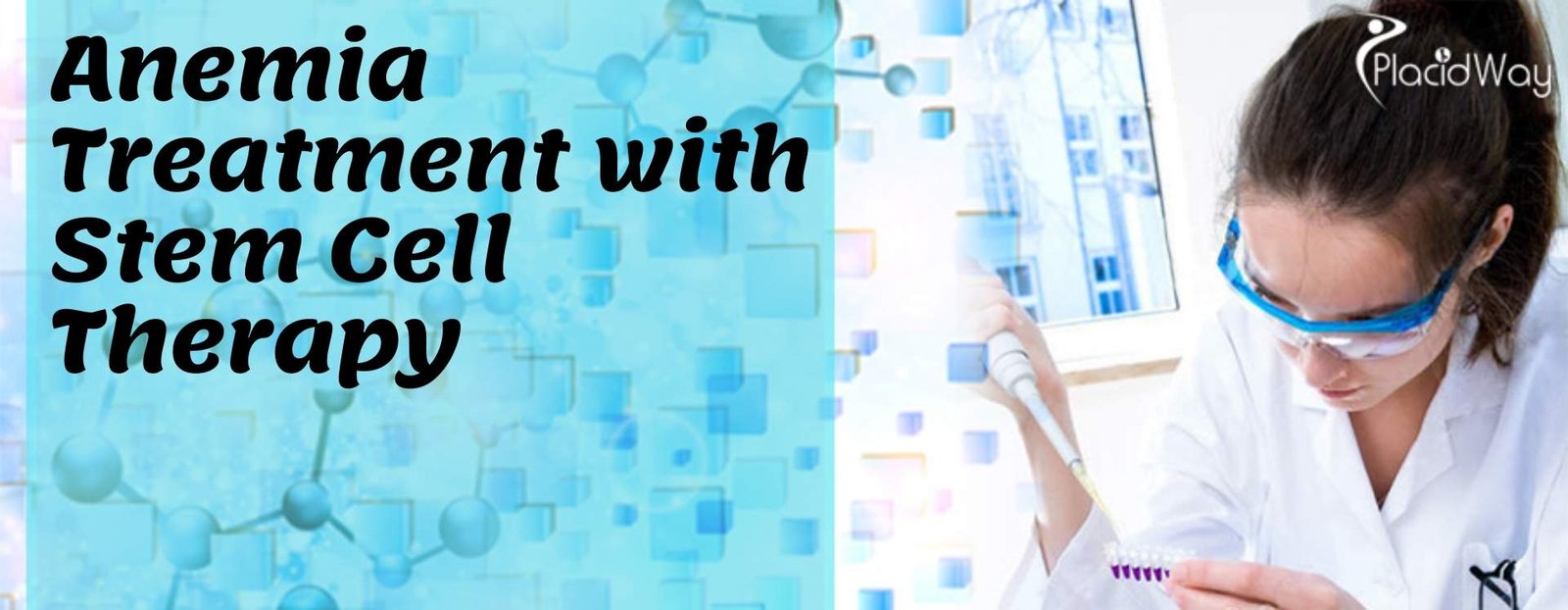Regenerative Medicine for Anemia Treatment
Table of Content
Regenerative medicine is a branch of medicine that focuses on the use of stem cells and other biological materials to repair or replace damaged tissue and organs. It is an emerging field that has the potential to revolutionize the way we treat a wide range of diseases and conditions, including anemia.
What is Anemia?
When the total count of hemoglobin or red blood cells decreases resulting in reduced oxygen level carried to tissues from lungs, the condition is termed as anemia. Oxygen is the most important thing for all human cells, there can be a wide range of clinical consequences for different degrees of anemia.
Causes of Anemia
If we consider the global population, one-third of it is affected by anemia. So, it can be said that anemia is the most common blood disorder. What causes this disorder? Anemia is mainly caused due to three conditions:
- Impaired production of red blood cells (ineffective hematopoiesis)
- Increased destruction of red blood cells (hemolysis)
- Excessive blood loss
How Stem Cell Therapy for Anemia Treatment with Stem Cell Therapy
One potential approach to using stem cell therapy for anemia treatment is through the use of hematopoietic stem cells, which are stem cells that give rise to all types of blood cells, including red blood cells. These stem cells can be isolated from bone marrow or cord blood and transplanted into a patient to stimulate the production of new blood cells.
Another approach is through the use of mesenchymal stem cells, which are a type of adult stem cell that can differentiate into a variety of cell types, including red blood cells. These stem cells can be isolated from a variety of tissues, including bone marrow, fat, and skin, and transplanted into a patient to stimulate the production of new blood cells.
Several factors can lead to anemia and there are numerous ways to treat the disorder. Several research works and studies show the effectiveness of stem cell therapy for anemia treatment. Such treatment impacts and addresses the pathogenetic component of anemia.
Both primary and secondary anemia including hereditary and aplastic anemia can be treated using stem cell therapy. If the patient is not responding to the standard anemia treatment methods, it can be considered as an indication to administer stem cell treatment.
Benefits of Stem Cell Therapy for Anemia Treatment
The main aim of pharmacological therapy is to stimulate damaged bone marrow of the patient and substitutive blood transfusions work towards deficiency of blood cells. Treatment with stem cells focuses on cell application of erythrocyte precursors or erythropoietic series, which boosts the pool of cells responsible for hematopoiesis in the patient’s body. This results in the growth of erythrocytes count and hemoglobin levels, which causes noteworthy development in the quality of life of patients along with a decrease in dosage and number of medications taken.
Anemias of various etiology have shown positive results with stem cell therapy. They are particularly effective in severe aplastic anemia conditions. High levels of hemoglobin persist in many cases for several years after one-two courses of stem cell therapy. These patients generally don’t require further hematology treatments at a hospital or any need for undergoing regular treatment at a hospital.
Sickle cell anemia patients can also use stem cell therapy for reducing the crisis frequency, to pacify their course, as well as reduce the need for frequent transfusions of packed red cells. So, these patients get relief from the stressful procedures that are also full of risks.
There are also several benefits of stem cell therapy for patients with hereditary anemias. The effect of treatment with time and successive stem cell treatment courses are essential.
FAQs about Stem Cell Therapy Treatment for Anemia Treatment
How is stem cell therapy for anemia administered?
Stem cell therapy for anemia is typically administered through a process called intravenous infusion, in which the stem cells are injected into a vein in the patient’s arm or hand. The stem cells are usually suspended in a small amount of liquid, such as saline, and are administered over a period of time, typically lasting several hours.
Is stem cell therapy for anemia safe?
Like any medical procedure, stem cell therapy for anemia carries some risks and potential side effects. However, stem cell therapy is generally considered to be a safe and effective treatment option for a wide range of conditions. It is important to discuss the potential risks and benefits of stem cell therapy with a healthcare provider before undergoing treatment.
How long does stem cell therapy for anemia take?
The length of time required for stem cell therapy for anemia can vary depending on the specific treatment protocol being used. In general, stem cell therapy for anemia typically involves a single treatment session, which can last several hours.
What are the potential benefits of stem cell therapy for anemia?
The potential benefits of stem cell therapy for anemia include increased energy levels, improved physical function, and reduced fatigue and weakness. Stem cell therapy may also be able to stimulate the production of new red blood cells and restore normal blood production, which can help to alleviate the symptoms of anemia.
Are there any alternative treatments for anemia?
There are several different treatment options for anemia, including dietary changes, iron supplements, and blood transfusions. In some cases, anemia may be treated with medications that stimulate the production of red blood cells or increase the absorption of iron from the diet. In more severe cases, anemia may be treated with a bone marrow transplant, in which healthy bone marrow cells are transplanted into the patient to stimulate the production of new blood cells. It is important to discuss the appropriate treatment options with a healthcare provider.
For more details about stem cell treatment for anemia and stem cell clinics, click below:







